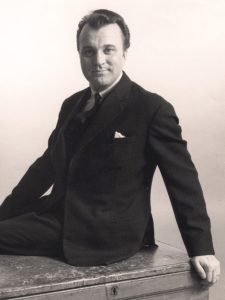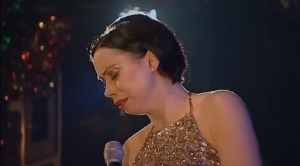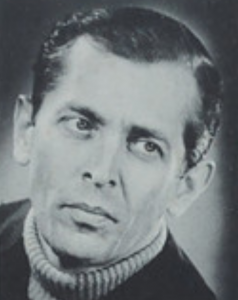Podcast: Play in new window | Download (Duration: 1:24:08 — 88.0MB) | Embed
Subscribe: Spotify | TuneIn | RSS | More
Today’s episode is a special request from one of my most dedicated listeners, and one with which I am happy to comply. It is already seven years this month since the death of the great Swedish tenor Nicolai Gedda (11 July 1925 – 8 January 2017). One of the most cultivated singers of the twentieth century, Gedda not only had a rock-solid technique and an instantly recognizable timbre, but he was a brilliant musician and a polyglot of the first order, singing a wide range of repertoire and styles in a host of languages. He was also a prolific recording artist. Though he sang an enormous range of operatic roles, in this episode, I have decided to focus entirely on a slightly lesser-known aspect of his career: his work in art song. Gedda was a master of French style, but also celebrated for his performances of Russian music. And one of the three languages he spoke while he was growing up was German, which lends his work in that language a real authenticity as well. In listening to recordings of song repertoire, I was struck by the frequent added spontaneity and commitment of his live versus his studio performances, so the episode features a large number of selections culled from Gedda’s live recitals. Gedda is accompanied by some of the most exceptional pianists of his time: Alexis Weissenberg, Wolfgang Sawallisch, Gerald Moore, Geoffrey Parsons, Dalton Baldwin, Erik Werba, Hermann Reutter, and his compatriot and most frequent collaborator Jan Eyron. Another extraordinary aspect of Gedda’s singing was his longevity. We hear him in songs by Strauss, Berlioz, Schubert, Janáček, Duparc, Grieg, Schumann, Fauré, Respighi, and Gounod, recorded over a period of nearly 40 years. Here is another singer who was active into the twilight of his life and sang into his seventies with both the intimacy and clarion power that were his musical trademarks.
Countermelody is a podcast devoted to the glory and the power of the human voice raised in song. Singer and vocal aficionado Daniel Gundlach explores great singers of the past and present focusing in particular on those who are less well-remembered today than they should be. Daniel’s lifetime in music as a professional countertenor, pianist, vocal coach, voice teacher, and journalist yields an exciting array of anecdotes, impressions, and “inside stories.” At Countermelody’s core is the celebration of great singers of all stripes, their instruments, and the connection they make to the words they sing. By clicking on the following link (https://linktr.ee/CountermelodyPodcast) you can find the dedicated Countermelody website which contains additional content including artist photos and episode setlists. The link will also take you to Countermelody’s Patreon page, where you can pledge your monthly support at whatever level you can afford. Bonus episodes available exclusively to Patreon supporters are currently available and further bonus content including interviews and livestreams is planned for the upcoming season.



